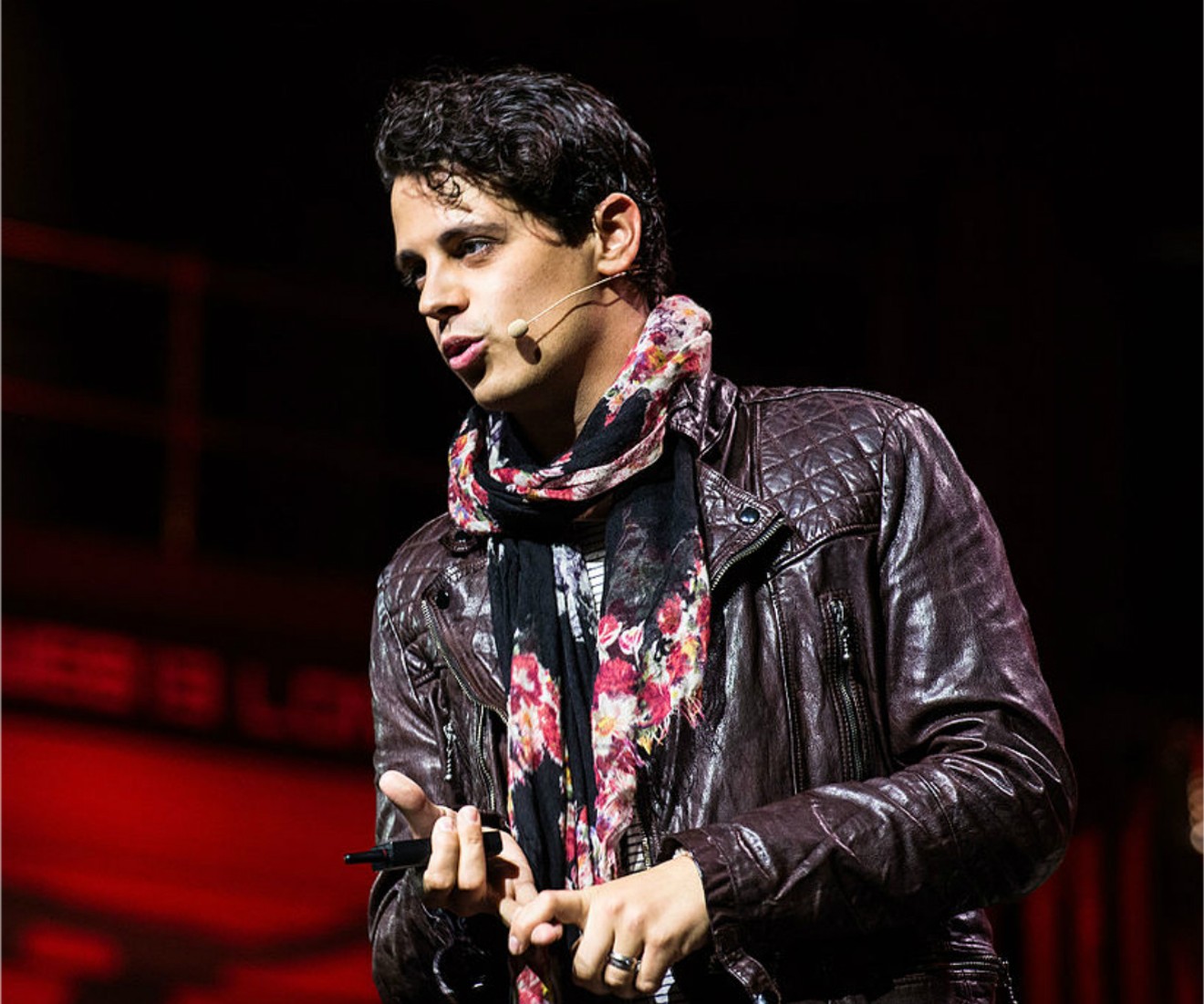UPDATE: SB 1142 was approved by the Arizona Senate on Wednesday, with all 17 Republicans voting for it and all 13 Democrats voting against it, according to the Associated Press. The bill now moves to the House.
It requires a unique type of shamelessness to invoke the names of Martin Luther King Jr. and Cesar Chavez while pimping a bill that targets the rights of free speech and assembly as enshrined in the First Amendment to the U.S. Constitution.
But, as you will see, the supporters of Senate Bill 1142 are good like that.
SB 1142, the brainchild (irony alert) of potty-mouthed Republican state Senator Sonny Borrelli, would expand Arizona's definition of "riot," amend the state's racketeering laws to cover rioting, and make it easier to pin "conspiracy to riot" on run-of-the-mill demonstrators.
During a recent hearing of the state Senate Judiciary Committee, Borrelli and the bill's other backers suggested that Arizona really, really needs this legislation,
Why?
Because of the violent behavior that took place in D.C. during the January 20 inauguration of President Trump and the recent unrest at the University of California, Berkeley. The California riot caused the cancellation of an appearance by alt-right icon and Breitbart.com senior editor Milo Yiannopoulos as part of his so-called "Dangerous Faggot" speaking tour of college campuses.
In both cases, black-clad anarchists battled with police, assaulted Trump supporters, and destroyed property.
In D.C., cars were set aflame, and 230 people were arrested, some of them reporters who had been documenting the protests.
At the Berkeley melee, demonstrators hiding their faces and using so-called "black bloc" tactics, tossed Molotov cocktails, set fires, and smashed ATMs, causing an estimated $100,000 in damage.
Local police largely did nothing, according to reports. Some Trump supporters were publicly attacked, including one woman who was pepper-sprayed by an anti-Trump thug as the woman was being interviewed by a CNN affiliate.
Borrelli's answer to this turmoil is to make rioting one of the many offenses that could be prosecuted under Arizona laws mirroring the federal Racketeer Influenced and Corrupt Organizations Act, commonly associated with government crackdowns on organized crime.
RICO laws allow prosecutors to seek heightened criminal and civil penalties against the leaders and members of a criminal organization, even if they personally did not commit an underlying crime, such as murder, theft, bribery, extortion, and so on. Government attorneys also can go after organized crime honchos for conspiracy and can seize an illicit organization's assets and sources of revenue.
Problem is, the language in Borrelli's bill is dangerously broad. A person can be charged with conspiracy to riot even if there is no "overt act" committed, according to the bill. Terrorism is the only other RICO crime where an overt act, defined in law as an action that can be used to prove criminality, is not needed.
SB 1142 also would expand the definition of rioting, already a Class 5 felony, punishable by up to 2 years in prison, to include property crimes.
Under the proposed revision, someone commits a riot, if, along with two or more people, the perpetrator uses force or violence or threatens to use force or violence, which either disturbs the peace or "results in damage to the property of another person."
That revised language would also open up organizers of a protest to the charge of illegal control of an enterprise, a Class 3 felony, punishable by up to seven years in prison. In some cases, it even can be a Class 2 felony, punishable by a maximum sentence of 10 years.
Seems both MLK and Chavez would applaud these RICO enhancements for rioting.
That is, if you buy the bull spread by Borrelli and another of the bill's backers, Mark Spencer, past president of the Phoenix Law Enforcement Association (the union for line cops at the Phoenix Police Department), who now works as the Southwest rep for the D.C.-based far-right advocacy group Judicial Watch.
Spencer, an unusually unctuous individual, cited Chavez and King as two of his heroes during his testimony in support of SB 1142 to the committee.
"Here are two men who had a positive impact on our minority community partners," said Spencer, who is white. "Not through this thing called riot, but through [peaceful] protest."
The new law is necessary for "deterrence," explained Spencer, a concept that upholds "the work environment for law enforcement officials."
This fervent need on the part of some to make life easier for men and women in blue reminds me of that old line from Orson Welles' noir classic Touch of Evil : "A policeman's job is only easy in a police state."
Which, no doubt, SB 1142's supporters would love to make a reality. Arizona Police Association executive director Levi Bolton also spoke in favor of the bill, claiming that it does not interfere with a person's rights under the First Amendment. He cited the disturbances in D.C. and Berkeley as necessitating the legislation.
Arguing on behalf of his bill, Borrelli told the committee that the First Amendment is "not absolute," and that the legislation was attempting to protect "the civil liabilities [sic] of the citizens.
" The bill would also allow law enforcement to target "the money source" for the people "paid to go out and create this damage."
Anarchists get paid? Who knew?
Borrelli repeated this allegation of paid troublemakers a couple of times, but offered no examples or evidence to back up his allegation. A call by this reporter to Borrelli to ask about these bankrolled anarchists was not immediately returned.
Not sure if this is what Borrelli was referencing, but there have been rumors promulgated on some right-wing websites — reported as fact, natch — of the anarchist shutdown of the Yiannopoulos event being funded by George Soros-backed organizations.
In fact, a lefty nonprofit in Tucson, Alliance for Global Justice, was fingered by one right-wing website as funding a radical group that took credit for the demonstration in Berkeley. But the Arizona Daily Star's Joe Ferguson refuted this allegation as inaccurate in a recent item for that paper.

Former PLEA president Mark Spencer, invoking MLK and Cesar Chavez to back a bill limiting the First Amendment.
Arizona Legislature
When I asked the ACLU of Arizona's policy director Will Gaona about the ACLU's opposition to the bill, he harrumphed at Borrelli's wild claims of anarchists financed by liberal groups.
“The sponsor’s purported purpose for this bill isn’t based in reality," he said. "It’s a myth that protesters are being paid. No one but rioters need to be held accountable for riot.”
During the hearing, Borrelli maintained that his bill was not a knee-jerk response to the Berkeley and D.C. riots, insisting the bill had been in the works for months. But like a ready-made Reichstag fire, these far-flung disturbances did offer Borrelli's bill both timeliness and a raison d'etre.
And like Spencer, Borrelli found inspiration in two proponents of nonviolent civil disobedience.
"Martin Luther King, they [sic] had peaceful protests," stated Borrelli, "Cesar Chavez had peaceful protests. Until other agitators jumped in there to undermine that."
And yet, the situation Borrelli describes, with "agitators" jumping in to take over nonviolent actions, could have gotten King and Chavez jacked up on conspiracy to riot charges, if Borrelli's bill had been law back in the day.
Local defense attorney Kevin Heade spoke against the bill at the hearing, correctly arguing that SB 1142 further criminalizes conduct that is already adequately addressed by state laws against assault and criminal damage, among others.
Heade and the Democrats on the committee noted the obvious: that public protests often involve different groups with varying tactics. Under Borrelli's bill, organizers of a peaceful protest could, hypothetically, be held accountable under RICO for the violent actions of a different faction or of individuals who act out while others remain calm.
As for the "deterrent effect" lauded by Spencer, Heade was dismissive.
"What they mean by the 'deterrent effect' of the statute is the chilling of First Amendment speech and association," Heade said. "That's what this 'deterrence' is."
Republican state Senator Bob Worsley, a member of the Judiciary Committee, criticized the bill as yet another effort at over-criminalizing acts that are already criminal, which only increases the state's prison population at a cost the state's budget can ill afford.
Worsley voted with the other GOPers to move the bill out of committee with a "do-pass" recommendation, but he reserved the right to vote against the bill on the floor of the Senate.
As always, the Arizona legislature is a reservoir of bad ideas, and this is one of many that has floated to the surface this session. But it is one that I blame, in part, on reactionary lefties, who are so incensed by the speech they do not like, that they are willing to shut it down by any means necessary.
Perhaps it is unfair to paint the peaceful protesters in D.C. and Berkeley with the black brush of anarchism. Nor do I expect anarchists to act as anything other than anarchists. Disruption and chaos are part of their mission statement, and they often show up — in Arizona and elsewhere — at demonstrations where they are not welcome.
However, the progressive response to right-wing provocateurs such as Yiannopoulos is often hysterical, over the top, and feeds right into Yiannopoulos' oft-repeated claim that the left is intolerant of opposing viewpoints.
There are many old-school liberals who recognize Yiannopolous' rhetorical trap for what it is. Still, too many lefties want to play PC police and drive offending views from their infantile safe spaces — college campuses being chief among these.
It's worth remembering that Yiannopoulos was not a guest of UC Berkeley. He was being hosted by the campus Republicans. Seriously, Yiannopoulos is no more offensive to the left than Noam Chomsky or Cornel West are to the right.
At a time when the Bill of Rights seems to hang by a thread, many on the left demand a heckler's veto, and many on the right are eager to let them have it.
Why? So reactionaries can use the left's rage as an excuse for duplicitous, police state legislation, like this bill from Borrelli.












